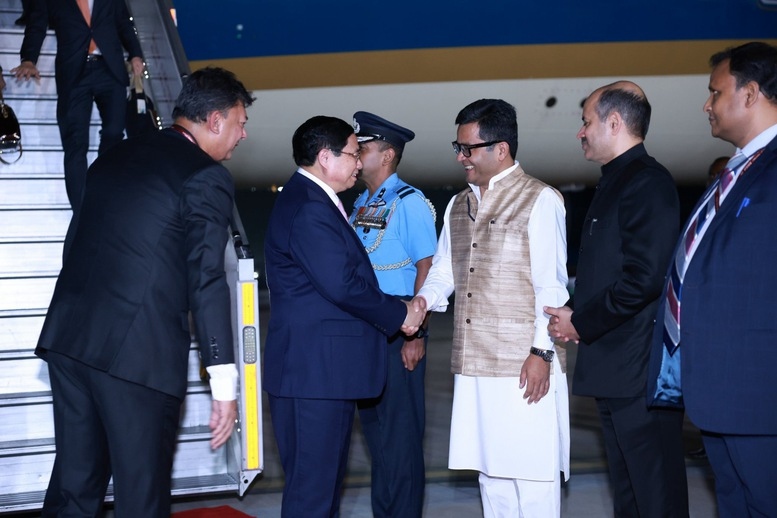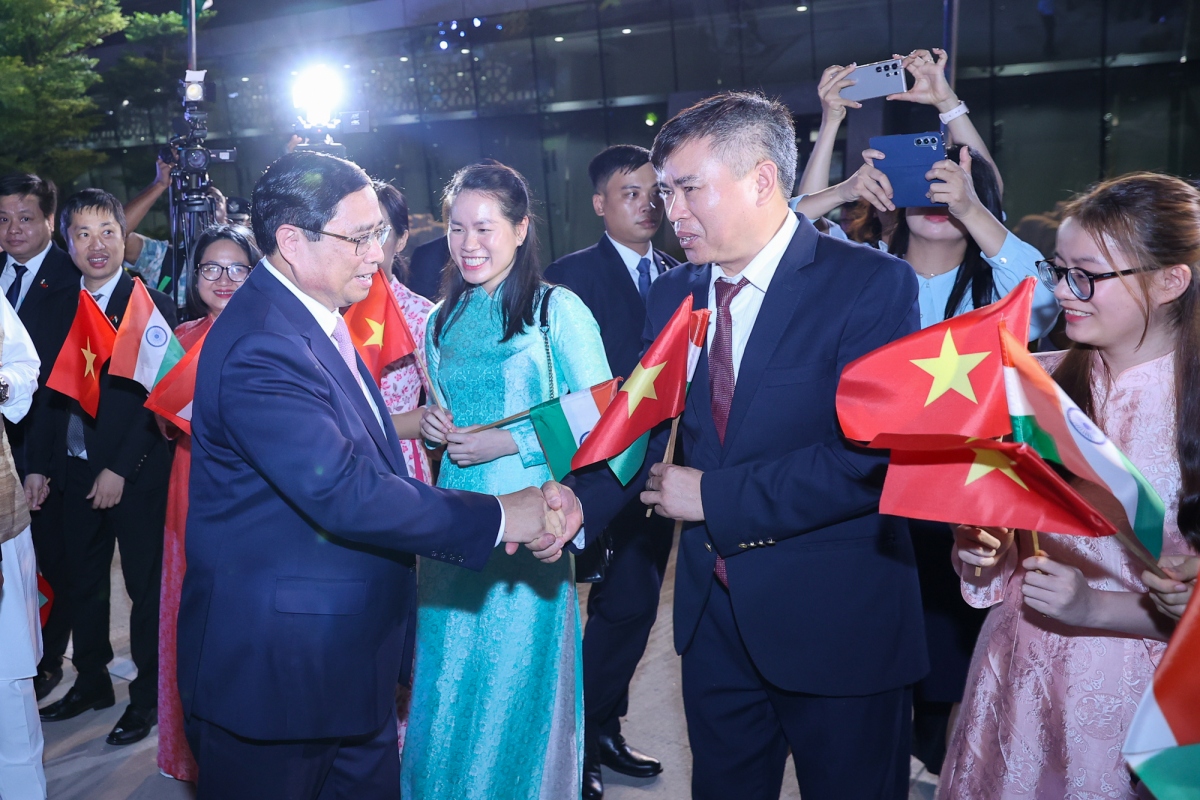PM Pham Minh Chinh arrives in New Delhi for State visit to India
VOV.VN - Vietnamese Prime Minister Pham Minh Chinh and his delegation touched down at Palam military airport in New Delhi on the evening of July 30 (local time), beginning a state visit to India following the invitation of Indian Prime Minister Narendra Modi.

Those welcoming PM Pham Minh Chinh and his entourage at Palam airport included Indian Minister of State for External Affairs Pabitra Margerita, Indian Ambassador to Vietnam Sandeep Arya, Vietnamese Ambassador to India Nguyen Thanh Hai, Vietnamese Consul General in Mumbai Le Quang Bien, and Vietnamese Embassy staff in India, among others.
The Vietnamese Government chief's India visit aims to affirm Vietnam's consistent policy of attaching importance to the traditional friendship and comprehensive strategic partnership with the South Asian nation.
During his stay, Chinh is scheduled to hold talks and meetings with senior Indian leaders, including Indian Prime Minister Narendra Modi, Indian President Droupadi Murmu, Chairman of the Upper House (Rajya Sabha) Jagdeep Dhankhar, and Speaker of the Indian Lok Sabha (the lower house) Om Birla.
PM Chinh will also meet with leaders of several Indian political parties, attend forums and talks with both nations' businesses, receive representatives from leading Indian economic groups, deliver speeches, visit the Vietnamese embassy, and meet with Vietnamese community representatives in India.

Through the visit, the two sides will enhance links in traditional areas, while simultaneously expanding cooperation in fields where both sides have potential and strengths such as electronics, telecommunications, biotechnology, pharmaceuticals, renewable energy, green economy, digital economy, artificial intelligence, semiconductors, new materials, and essential minerals.
The visit is expected to contribute to consolidating political trust, deepening all-around cooperation, and making the Vietnam-India Comprehensive Strategic Partnership more substantive and effective in terms of politics, diplomacy, security, defence, economy, trade, and investment.
This is also viewed as an opportunity for the two countries to compare notes on strategic issues relating to regional and international security, and affirm mutual support at multilateral forums of shared concern.


